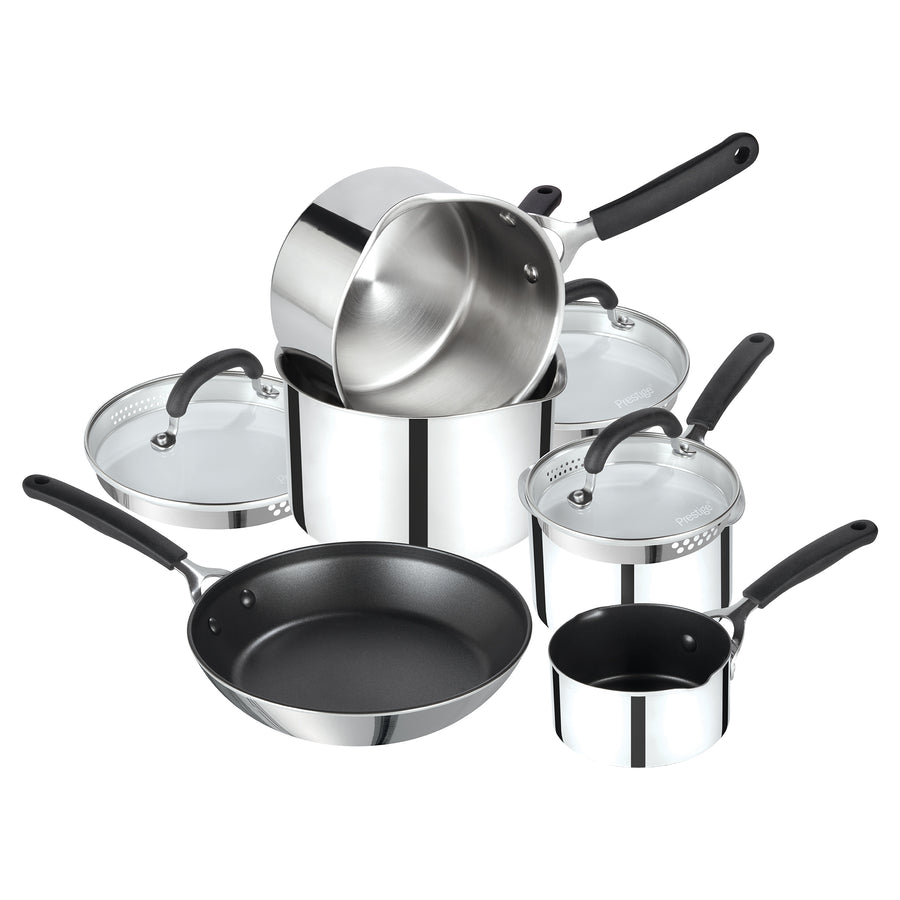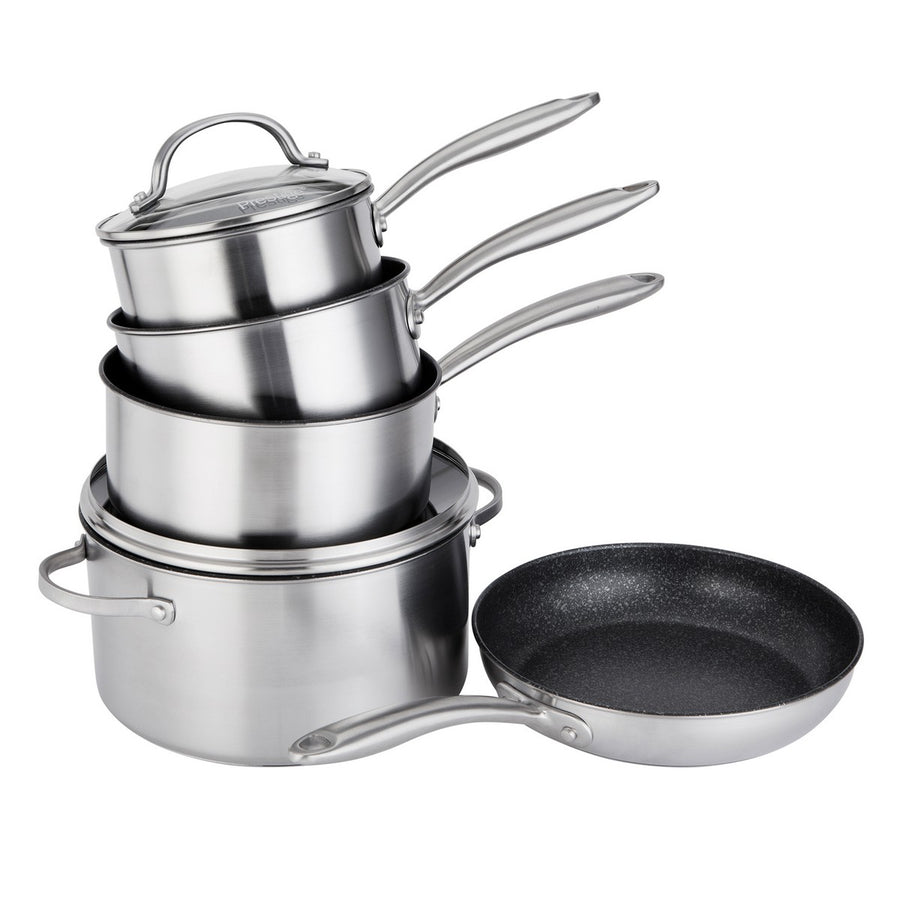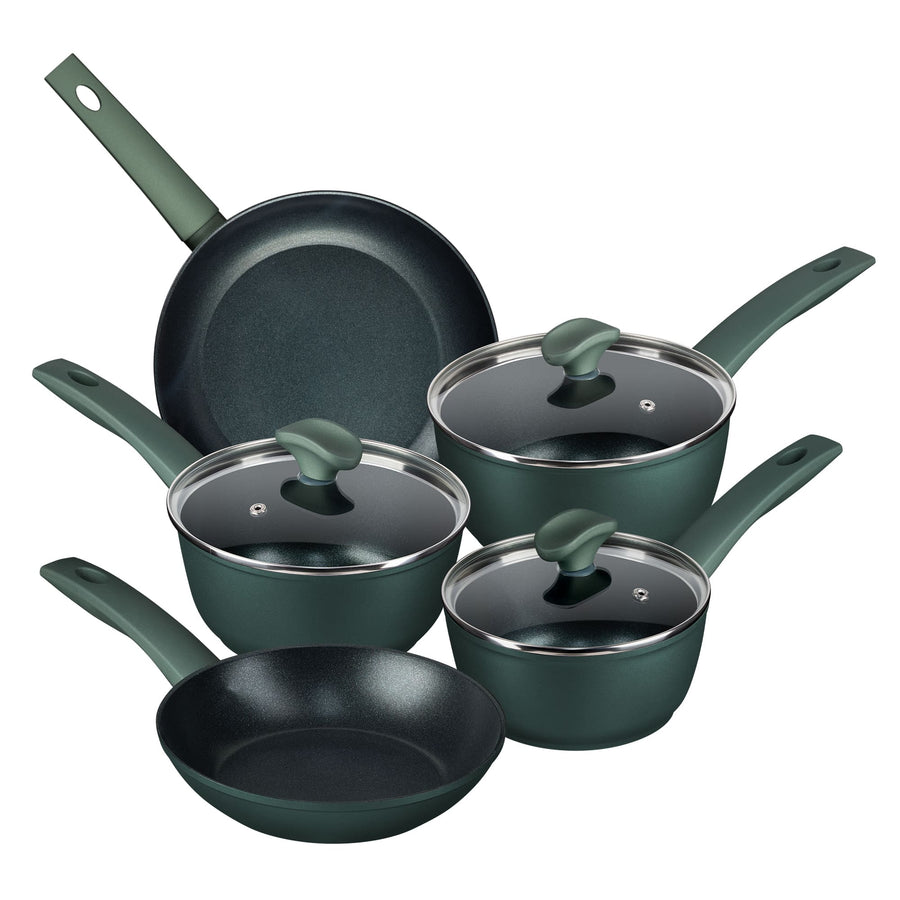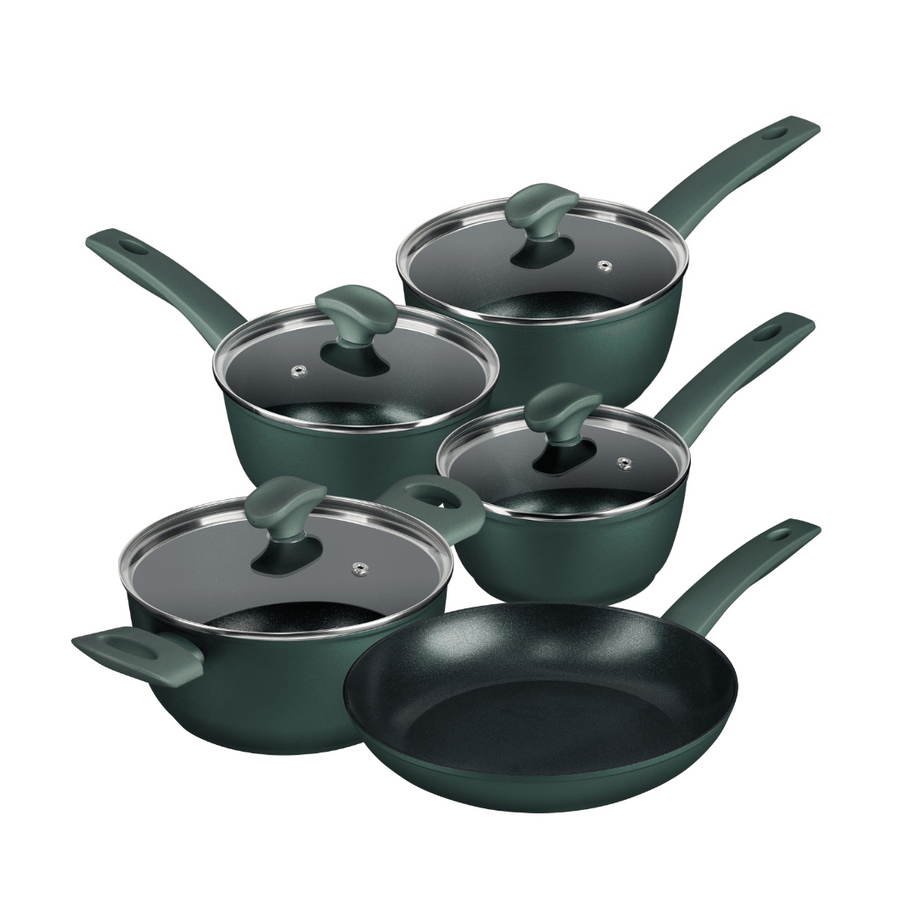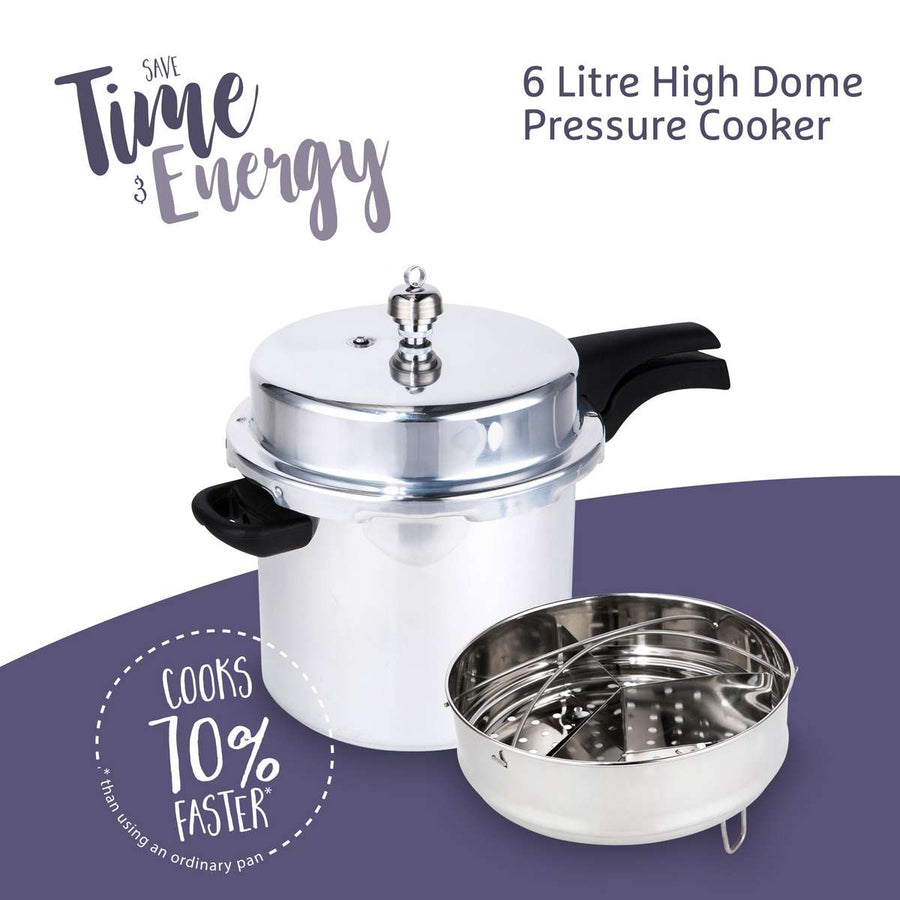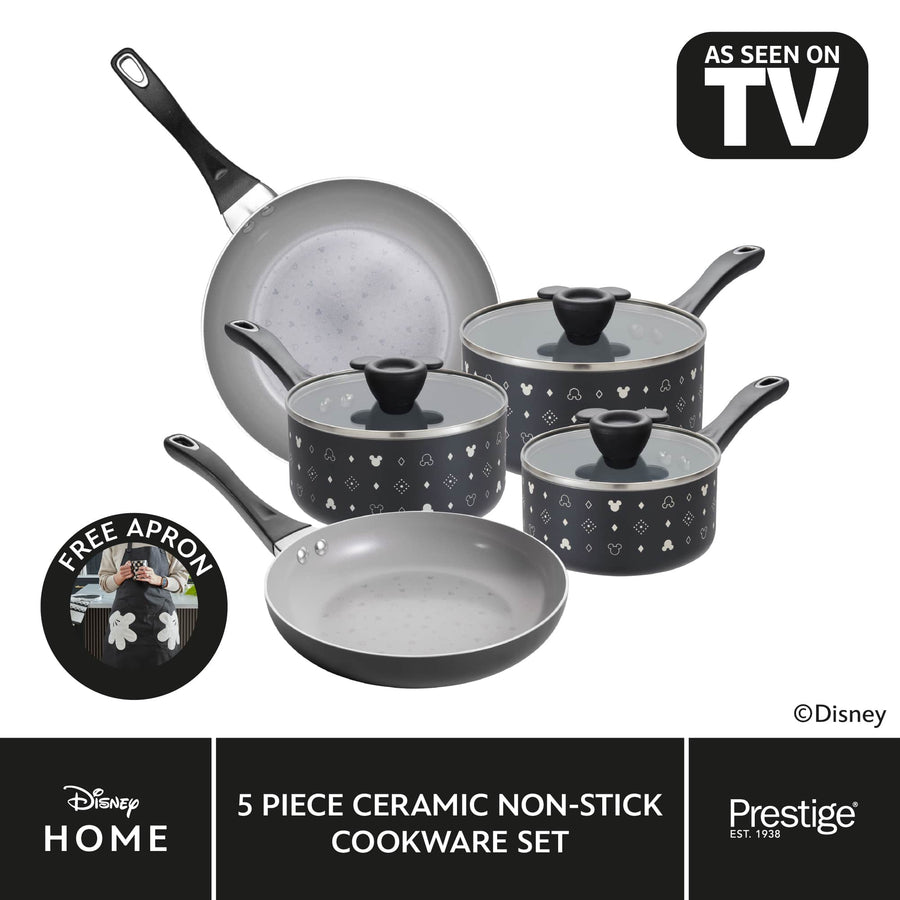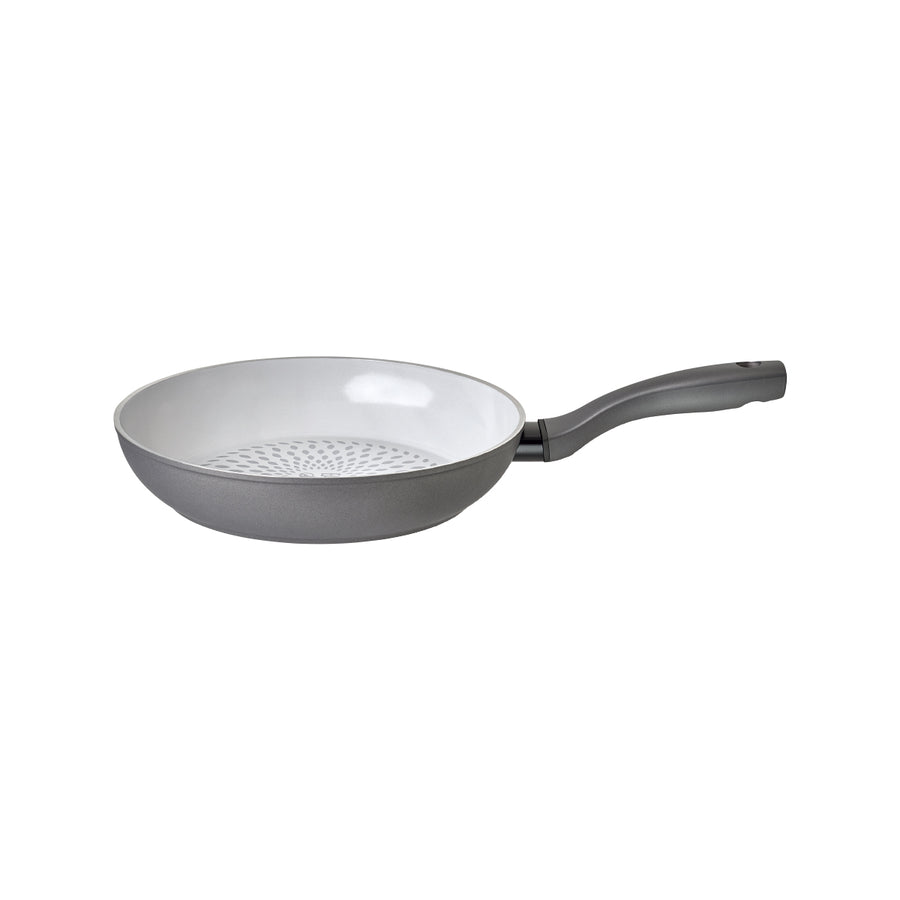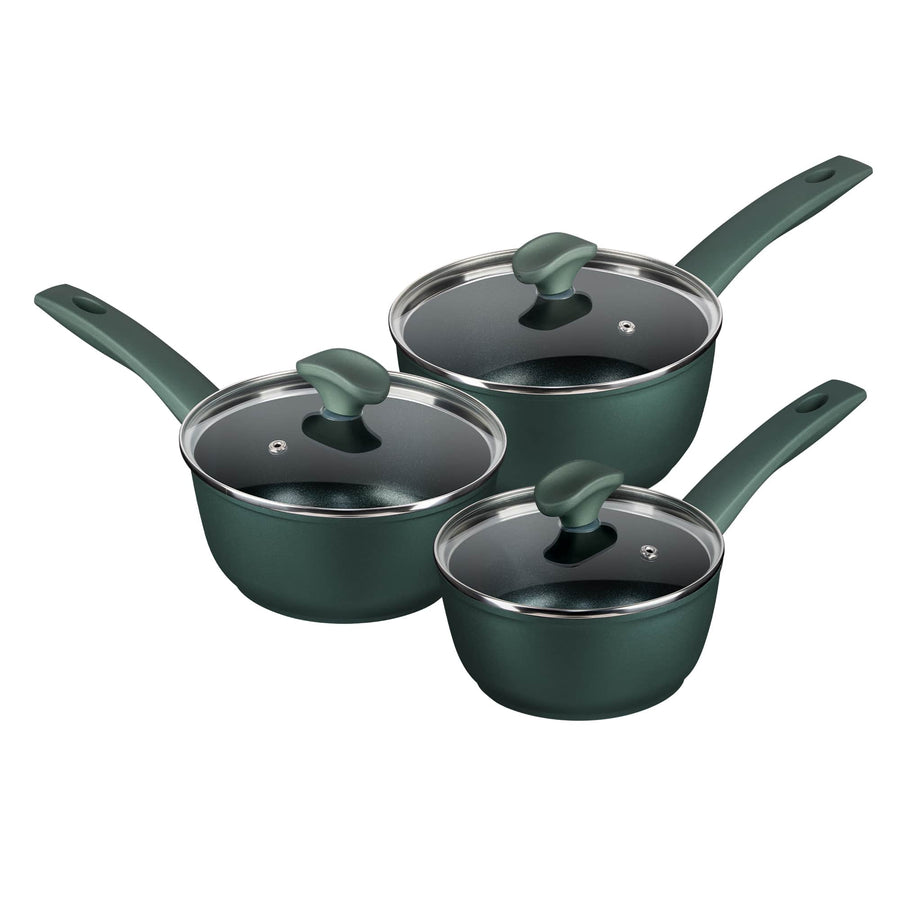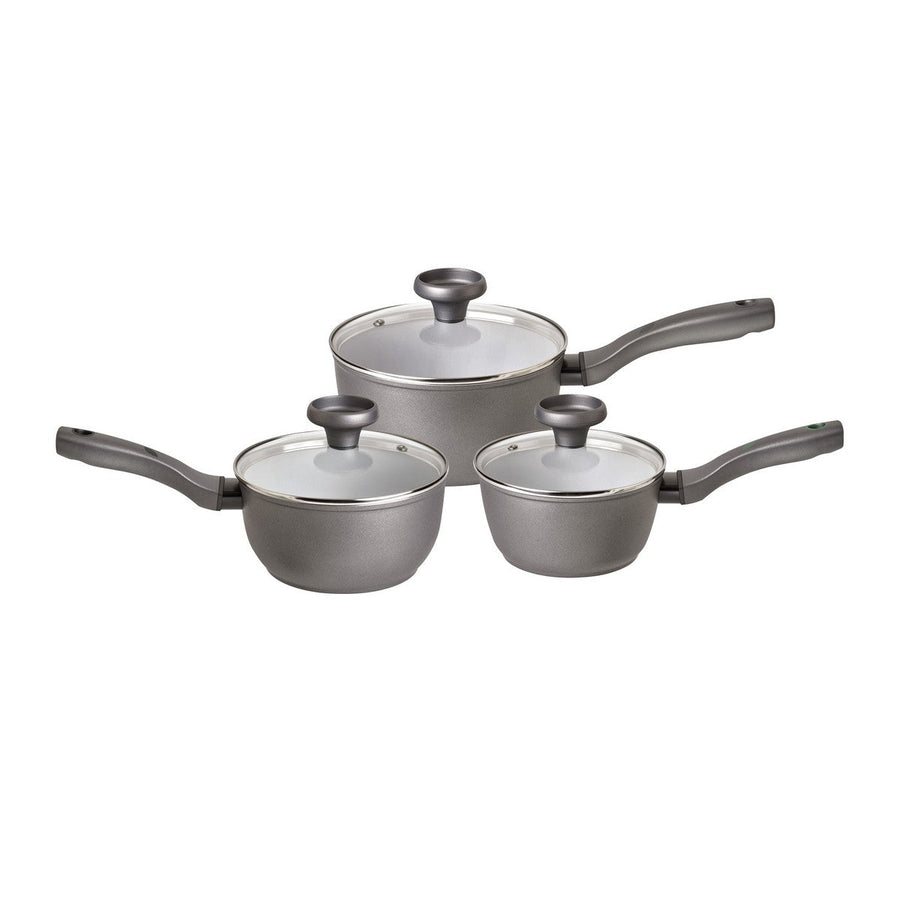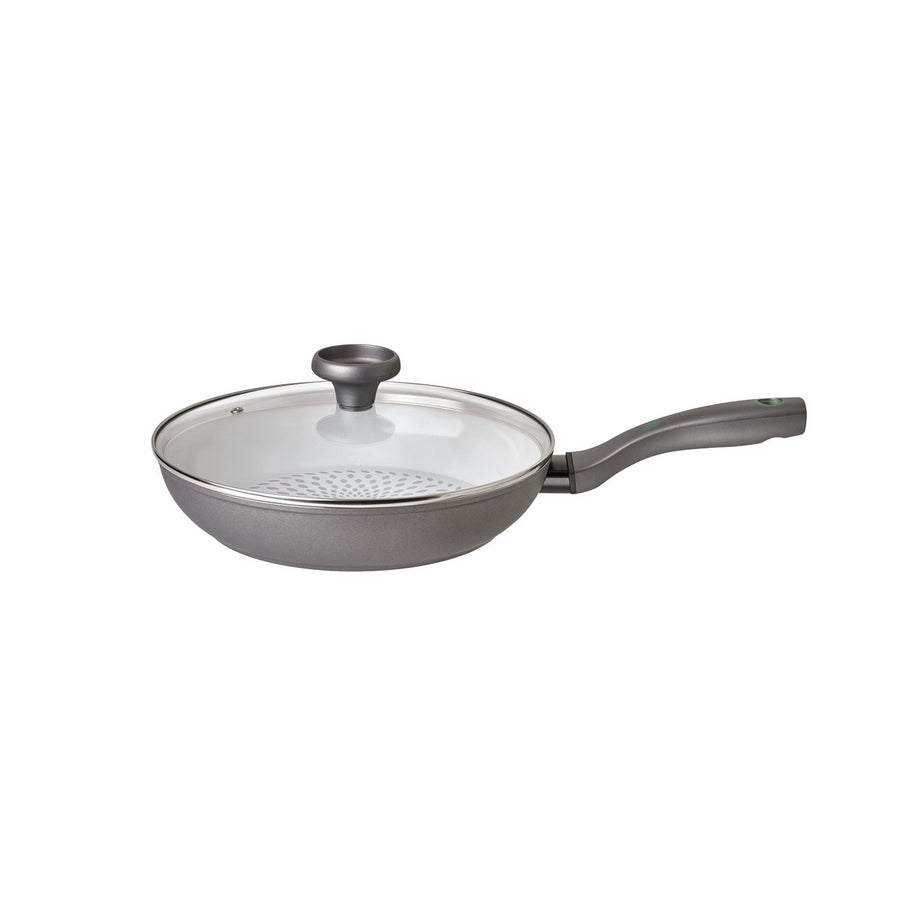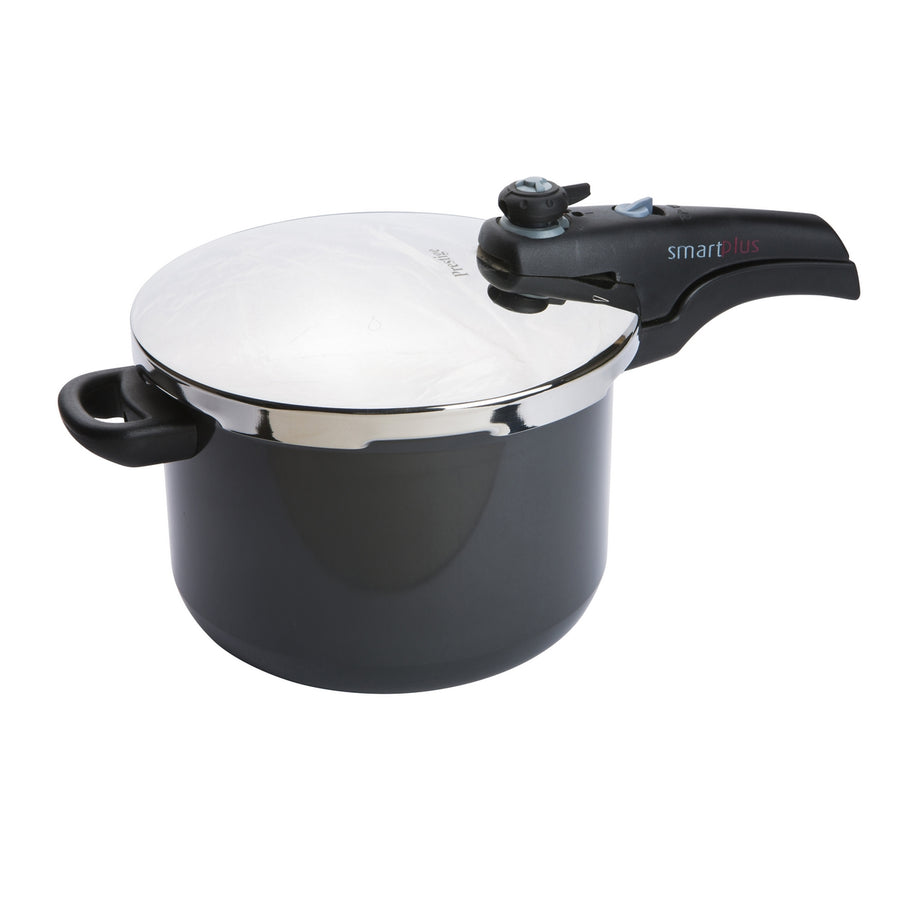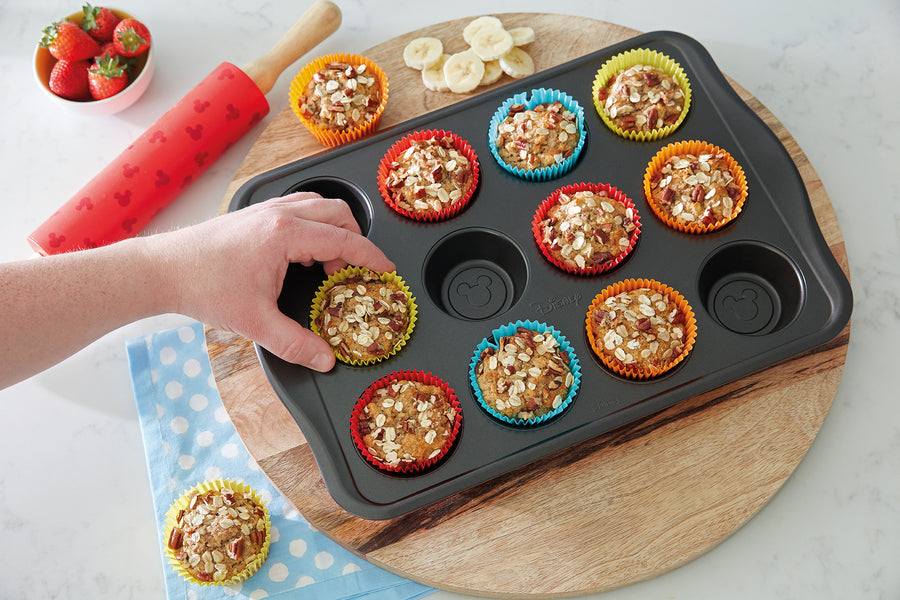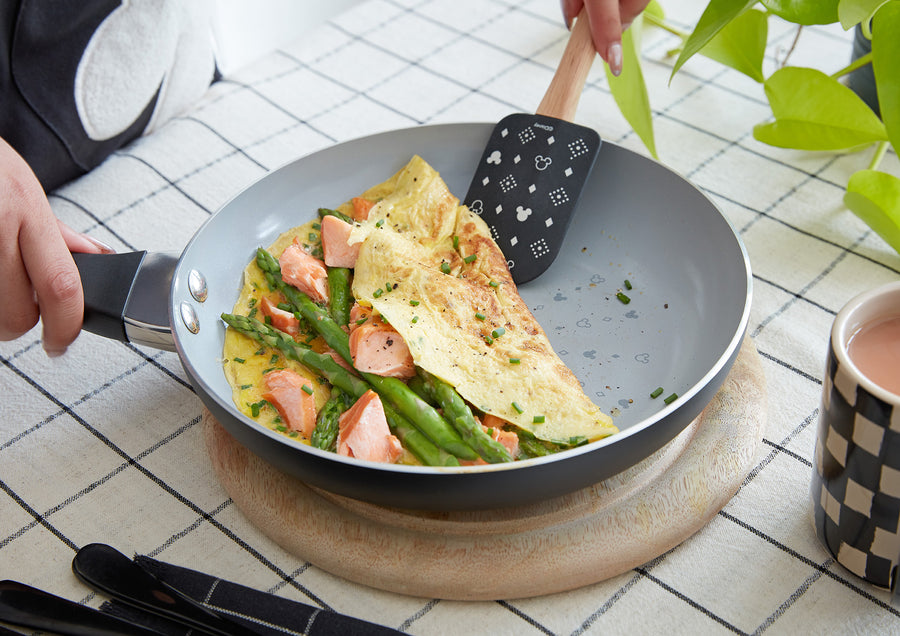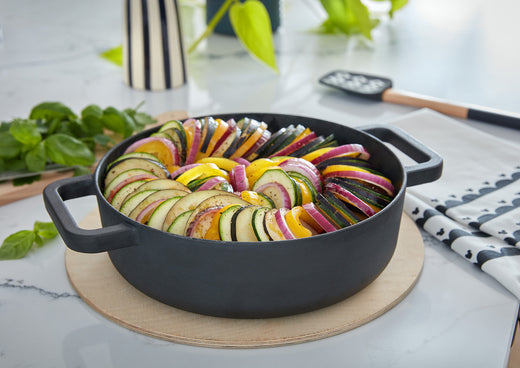Let’s face it - green is the new black. Whether you’re raising the next Greta Thunberg or you’re just trying to reduce your carbon footprint, sometimes saving the planet starts in the kitchen.
If you’re wondering how your family can help create a greener household, we’ve put together some handy tips to get you started.
Being the environment’s BFF doesn’t just mean changing the way you eat and reducing your waste. There are plenty of eco-friendly ways to clean your kitchen. For example, did you know that hand washing your dishes uses 3.5 times more water than an average dishwasher? You can also find biodegradable dishwasher tablets that are soluble in water, ensuring that harmful microplastics don’t find their way into the water supply.
While there’s a great range of green cleaning products on the market nowadays, sometimes it can be easier - and thriftier - to make your own. Bicarbonate of Soda, distilled white vinegar and lemon juice make great natural alternatives to shop-bought products that come in plastic packaging. Vinegar is also great for removing limescale on kettles – just fill the kettle with a solution of one-part water to one-part white vinegar and leave overnight (just make sure you give it a good rinse before you make your morning cuppa!
And if you’re wondering what to do with that old t-shirt, why not repurpose it into a cleaning cloth instead of throwing it away?
Even your pans can be good for the environment with our new three piece Eco cookware range. Our non-stick coating which is the world’s friendliest plant based non-stick is not only healthier for you and your family, you’ll be helping the planet too.
These days, there’s no excuse not to recycle. But did you know that there’s an extra step that’s even better for the environment? If you wash out those glass jars and plastic containers you can reuse them instead of getting rid of them. The long plastic boxes that laundry tablets often come in are brilliant for storage, and often come in bright colours that look great in a kids room (especially full of the Lego you’d otherwise stand on).,
The one thing that’s better than reusing? Reducing the amount of plastic you use in the first place. Although you can technically wash plastic freezer bags and reuse them, most people don’t - and silicone containers are easier to clean, better for the environment and come in very handy when you’re batch-cooking and want to freeze meat for the rest of the week (or month if you’re very organised).
Forget nose to tail and go stem to stalk by using up all those bits you’d normally throw away. There are countless recipes for different ways to use leftover veg, whether in stock or as ingredients in meals of their own. And if you find any that you just can’t use up no matter how hard you try..
This sounds like it’s going to be a) stinky b) only good if you have a garden and c) stinky. The good news is that none of that has to be true if you do a bit of research. A surprisingly popular option is the worm bin, which is pretty much exactly what it sounds like. Fill the bin with a little compost to get started, add some worms (not the regular kind, though - find out more here) and you can turn basic kitchen waste into high quality compost with things you’d otherwise throw out. Worried about bacteria? Don’t be. Worms love bacteria. They’re like worm superfood. There are probably worm restaurants that only serve different kinds of bacteria at a ridiculously high price for really cool worms with a big Instagram following. And don’t even think of expecting them to process those nutrients before they’ve had their morning java - coffee grounds are brilliant for worms. Looking for more top tips on how you can reduce food waste in your home? Follow us on Instagram at @YourPrestigeKitchen where you can also share your handy hints!
Keep your kitchen natural
Being the environment’s BFF doesn’t just mean changing the way you eat and reducing your waste. There are plenty of eco-friendly ways to clean your kitchen. For example, did you know that hand washing your dishes uses 3.5 times more water than an average dishwasher? You can also find biodegradable dishwasher tablets that are soluble in water, ensuring that harmful microplastics don’t find their way into the water supply.
While there’s a great range of green cleaning products on the market nowadays, sometimes it can be easier - and thriftier - to make your own. Bicarbonate of Soda, distilled white vinegar and lemon juice make great natural alternatives to shop-bought products that come in plastic packaging. Vinegar is also great for removing limescale on kettles – just fill the kettle with a solution of one-part water to one-part white vinegar and leave overnight (just make sure you give it a good rinse before you make your morning cuppa!
And if you’re wondering what to do with that old t-shirt, why not repurpose it into a cleaning cloth instead of throwing it away?
Even your pans can be good for the environment with our new three piece Eco cookware range. Our non-stick coating which is the world’s friendliest plant based non-stick is not only healthier for you and your family, you’ll be helping the planet too.
Reuse before you recycle
These days, there’s no excuse not to recycle. But did you know that there’s an extra step that’s even better for the environment? If you wash out those glass jars and plastic containers you can reuse them instead of getting rid of them. The long plastic boxes that laundry tablets often come in are brilliant for storage, and often come in bright colours that look great in a kids room (especially full of the Lego you’d otherwise stand on).,
Get rid of plastic
The one thing that’s better than reusing? Reducing the amount of plastic you use in the first place. Although you can technically wash plastic freezer bags and reuse them, most people don’t - and silicone containers are easier to clean, better for the environment and come in very handy when you’re batch-cooking and want to freeze meat for the rest of the week (or month if you’re very organised).
Use the whole plant
Forget nose to tail and go stem to stalk by using up all those bits you’d normally throw away. There are countless recipes for different ways to use leftover veg, whether in stock or as ingredients in meals of their own. And if you find any that you just can’t use up no matter how hard you try..
Start a compost bin
This sounds like it’s going to be a) stinky b) only good if you have a garden and c) stinky. The good news is that none of that has to be true if you do a bit of research. A surprisingly popular option is the worm bin, which is pretty much exactly what it sounds like. Fill the bin with a little compost to get started, add some worms (not the regular kind, though - find out more here) and you can turn basic kitchen waste into high quality compost with things you’d otherwise throw out. Worried about bacteria? Don’t be. Worms love bacteria. They’re like worm superfood. There are probably worm restaurants that only serve different kinds of bacteria at a ridiculously high price for really cool worms with a big Instagram following. And don’t even think of expecting them to process those nutrients before they’ve had their morning java - coffee grounds are brilliant for worms. Looking for more top tips on how you can reduce food waste in your home? Follow us on Instagram at @YourPrestigeKitchen where you can also share your handy hints!


